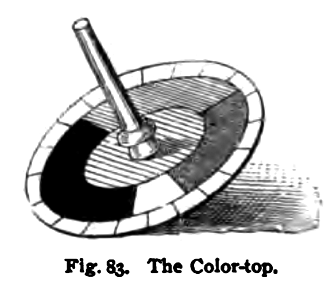So many of our feelings are stuffed. Unexpressed. Stifled by angry feelings you don't express. It takes a lot of energy to keep boundaries especially if you have had a traumatic childhood. Pushed your feelings to an exhaustion point. Do you avoid direct conflict? Do you withdraw? Evade problems. Has anyone ever called you passive-aggressive? If any of these apply, try identifying your feelings on a feeling wheel. Here's one: University of Oregon's Feeling Wheel by Bret Stein, 2011.
You need to click on the U of Oregon's Feeling Wheel link above to see this fantastic image. It is an awesome image.
It will definitely help identify your feelings.
Below is an image to distract you from identifying feelings.
Simple Color-top from 1895 by Edward Wheeler Scripture, Wiki Commons. 
https://upload.wikimedia.org/wikipedia/commons/c/c0/NEW_Wheel_enhanced.png



